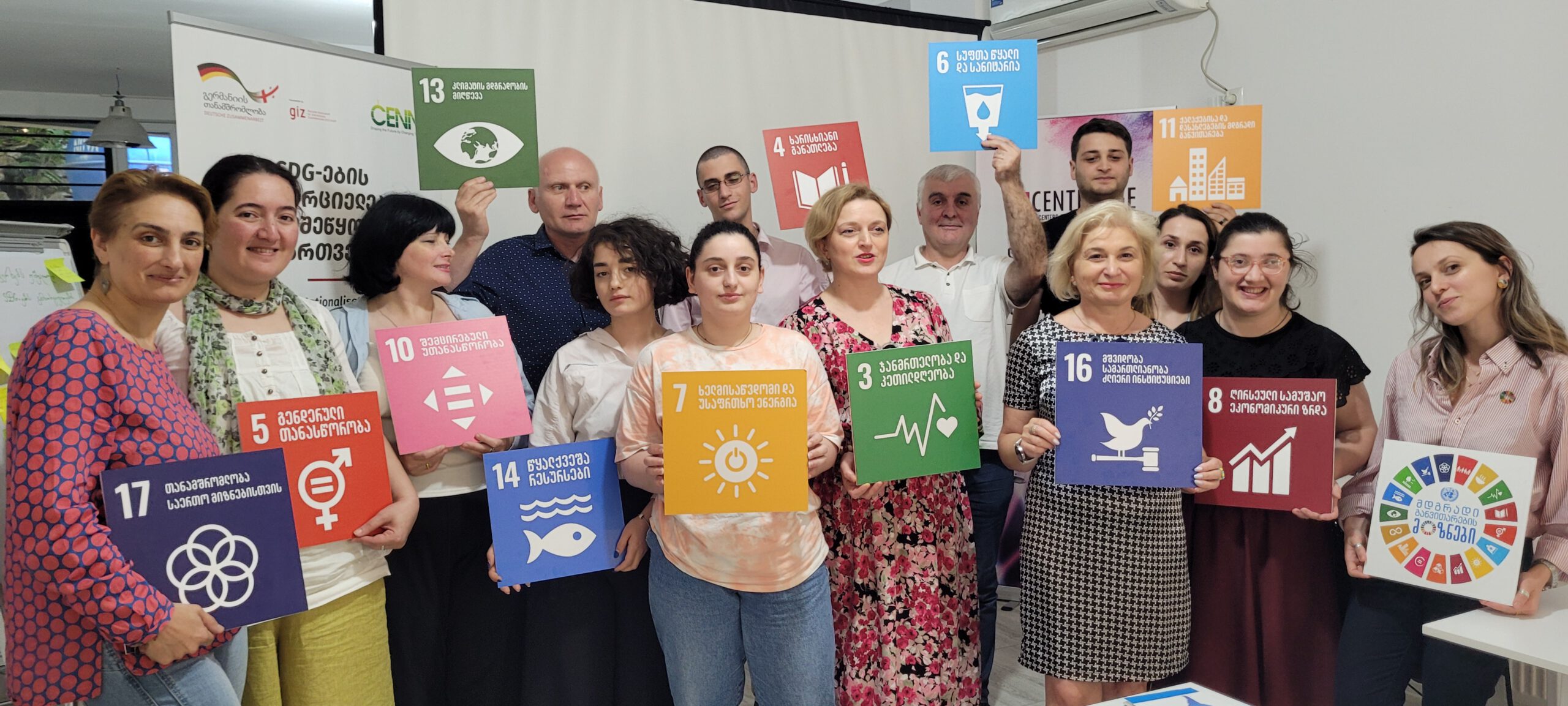CENN with the support of the German Government hosted meetings with 85 CSOs from 5 different municipalities in Georgia to support the localisation of SDGs. The training were held in Kutaisi, Zugdidi, Batumi, Telavi and Rustavi.
The trainings helped raise awareness about the SDGs and their importance, the role and capabilities of various sectors, especially the civil sector, in achieving the goals. The training aimed to offer municipal non-governmental sector representatives practical steps and best practice examples to ensure their involvement in the localisation and implementation of the SDGs.
After the training, long-term cooperation includes joint work with representatives of different sectors of the municipalities. Stakeholders will be able to work on linking local needs with global goals and contribute to developing municipal priority documents in this direction.
To achieve the 2030 Agenda (which Georgia joined in 2015), the involvement of the local population and stakeholders is crucial. Localization of the SDGs, i.e. implementation at the local level, means strengthening and facilitating local actors (e.g. local governments, public officials, civil society, businesses, citizens, etc.) to achieve sustainable development goals. At the same time, the term refers to how local actors can harness the 2030 Agenda as a framework for local development policy. The localizing process promotes local development that is responsive to local needs, challenges and opportunities
The training was held within the “Continued Nationalisation of SDGs in Georgia” project, which aims to jumpstart SDG implementation, continue the nationalisation of new targets and commence the localisation of SDGs in Georgia. The program is financed by Deutsche Gesellschaft für Internationale Zusammenarbeit (GIZ) GmbH on behalf of the German Federal Ministry for Economic Cooperation and Development (BMZ).
By strengthening the capacity of the SDG Council’s Secretariat, the thematic Working Groups and non-state stakeholders, the project supports the development of institutions that will ensure the long-term sustainability of the steps taken by the country toward the Sustainable Development Goals; thus, it contributes to the country’s sustainable development.
